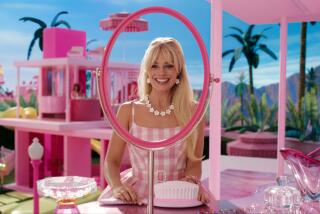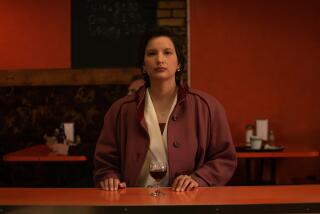TV Reviews : PBS’ ‘Childhood’ Examines Cultural Influences
- Share via
In the expansive, seven-part PBS series, “Childhood” (tonight at 8 p.m., Channels 28 and 15, Channel 24 at 9 p.m.), producer-director-writers Erna Akuginow, Eugene Marner and Geoff Haines-Stiles blanket the globe in a likely unprecedented attempt to observe the ways very different cultures raise their young. “Childhood” ambitiously paints out a humanistic--and intimate--view of the wonderful and complex ways children grow.
The overarching theme in the early episodes reviewed--and emphasized by such child development experts as Jerome Kagan, Urie Bronfenbrenner and Sandra Scarr--is that universals apply to all children: The baby’s need for constant, regular intimate and loving contact; a child’s early mental capabilities; above all, that children aren’t produced in a struggle between nature and nurture.
As Bronfenbrenner notes, that debate is outmoded and the development of a person can happen at any age. Children are neither just beings with genetic codes dictating their bodies and personalities, nor dependents molded by their care-givers and environment.
Fortunately, “Childhood” doesn’t simply parade a list of experts, but peers inside working families in Brazil, Japan, Cameroon, the United States and the Soviet Union to reveal how children both are made and make themselves. In the opening episode, we watch three different births: Maria Oliviera quietly delivering Sydney in Brazil; Deni, a Baka tribal woman in Cameroon, squatting to deliver Kamala; and New Yorker Barbara Kaufman needing drugs to induce labor while delivering Michele (notably, only Barbara’s husband, David, helps with the birth).
But in subsequent segments (with such alliterative titles as “Love’s Labors” and “Life’s Lessons”), what happens after birth makes all the difference. Because, for instance, Maria and husband Manoel have moved from their rural homeland to the city, Sydney will have a very different upbringing from his country cousins. Yet the series goes to some pains to show that, depending on the culture, a quality childhood doesn’t require a six-figure income: Who is to say that Kamala’s upbringing, aided by everyone in his tribal community, isn’t as “rich” as little Chizuka Nakayama’s in her upper-middle-class family in Japan?
Still, “Childhood” explicitly displays what a difference a society’s financial commitment to children makes.
More to Read
The complete guide to home viewing
Get Screen Gab for everything about the TV shows and streaming movies everyone’s talking about.
You may occasionally receive promotional content from the Los Angeles Times.






